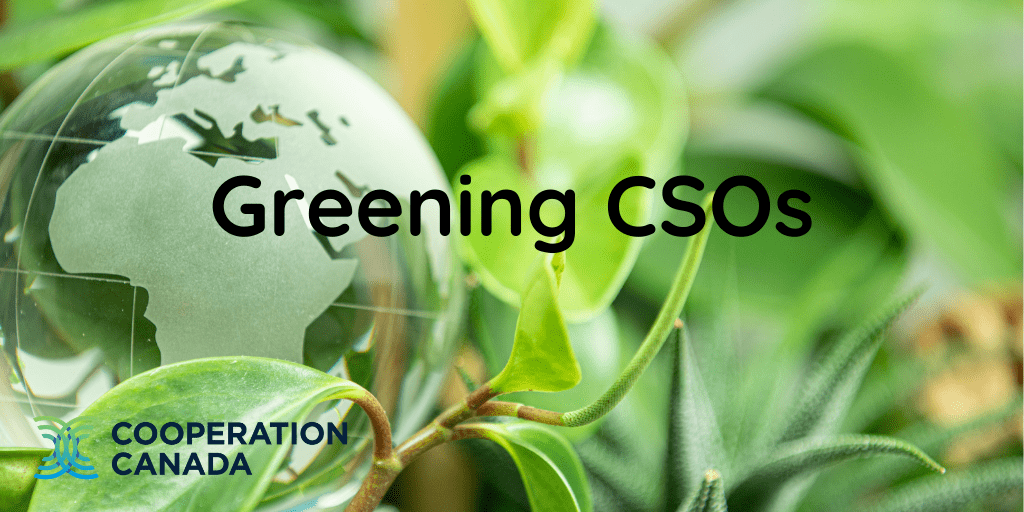On October 22nd, Cooperation Canada convened civil society organizations to examine links between faith and greening as part of its Greening CSOs initiative. Our webinar sought to explore the intersection of faith-based mandates and sustainable operations and programs. For those of you that missed it, here are our takeaways from the lively discussion.
1. Faith as a basis for ecological/environmental action is established and serves as a cross-cutting theme in the work of faith-based organizations. or a green world.
Ecological and environmental action was emphasized by participants, referring to approaches in organizations grounded in Christian and Islamic teachings. Greening efforts are linked to concepts of flourishing, stewardship, shared nature, the notion of care and land as sacred responsibilities, as well as the realization that human rights go hand in hand with realising ecological justice.
2. Faith communities and leaders are critical change agents for promoting environmental action in partner countries.
Working with faith communities and leaders locally for action on the environment in programming is key to strengthening communal responses as well as recognizing local knowledge, networks and capacity. Likewise, making use of scriptures can also enable a shift in narratives and attitudes towards our role in protecting the environment and the most vulnerable. Recent events and conditions have renewed the importance of faith’s role in caring for ourselves, and more importantly, our surroundings – the environment.
3. Opportunities exist for strong(er) collaboration between secular and faith-based communities to promote action on climate change and the environment through advocacy and public engagement efforts.
While Cooperation Canada has looked at advocacy, communications and policy in its research, the faith-based approach to sustainable operations witnessed in the survey, interview results and discussions from the webinar point to the prospects for greater collaboration between faith-based and secular organizations. This warrants further exploration. Collaboration between faith and value inspired narratives alongside the sector’s historic emphasis on government and personal commitments and responsibility has the potential to generate positive and sustainable change.
Cooperation Canada’s Faith and Greening peer learning session was the first of a series of convening moments for the Greening CSOs initiative. Stay tuned for future sessions around organizational environmental assessments, intersectionality and more.
Arianna Abdelnaiem
Research Assistant, Research Policy and Practice

